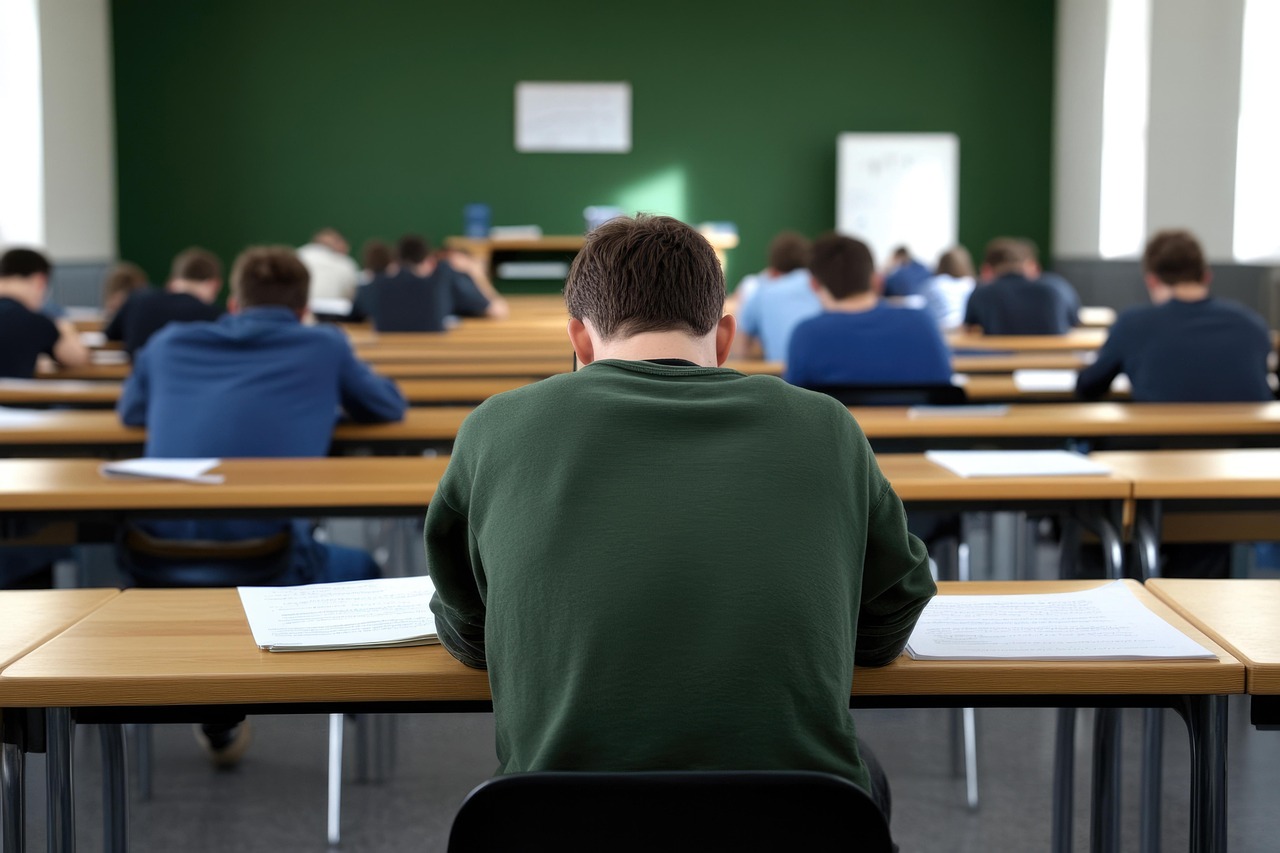Almost There: Closing the Final Chapter of Debating for Diversity
As the Debating for Diversity project enters its final phase, it is hard not to pause and look back – slowly, gratefully, and with a sense of pride. What began as an idea shared across borders has grown into a living, breathing collaboration that brought young voices together, challenged habits, and built something meaningful in three countries.
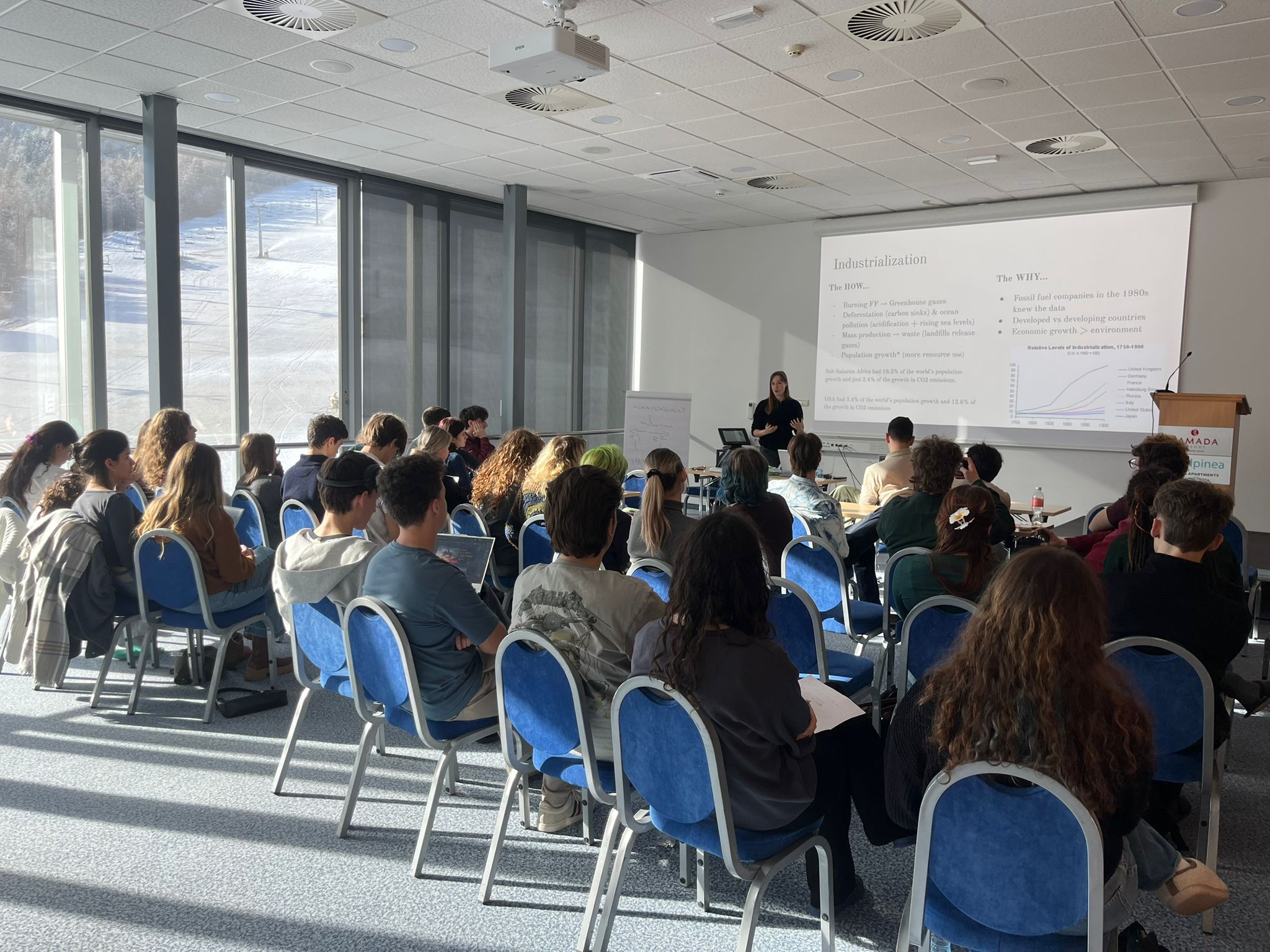 We are now in the last meters of the project – and what a journey it has been.
We are now in the last meters of the project – and what a journey it has been.
Over the past months, we organised dozens of debate sessions in Romania, Slovenia, and Serbia, creating spaces where young people could question, argue, listen, and rethink. These were not just debates in the technical sense, but moments of learning: about democracy, minority rights, technology, human rights, and – perhaps most importantly – about each other.
Learning Across Borders
One of the greatestt strengths of this project was the opportunity to learn from one another’s methods and traditions. We visited Slovenia, welcomed each other in Romania, and worked closely across borders – sometimes in meeting rooms, sometimes online, often late into the night. We compared approaches, tested ideas, and discovered how differently (and similarly) debate can be taught, facilitated, and lived.
Those long conversations didn’t end when the sessions were over. They continued while shaping what may become one of the project’s most lasting outcomes: a practical handbook on organizing debate sessions. Written collaboratively – sometimes literally in the late hours – the publication brings together experience, reflection, and concrete tools from all three partners.
Very soon, this work will become tangible. The handbook is heading to print and will be available in five languages, making the knowledge created during this project accessible well beyond its original framework. Holding it in our hands will be a powerful reminder of what shared thinking and comitmment can produce.
Reaching Beyond the Project
From the beginning, we believed debate should not stay behind closed doors. Throughout the project, we made a conscious effort to reach the wider public: sharing our work on Facebook and X, opening debates to audiences, and engaging with local media. Several local outlets reported on our activities, helping the project reach communities far beyond the debate rooms.
This openness also shaped how we chose to close the project. Rather than ending quietly, Debating for Diversity will conclude with a press conference, where we reflect publicly on what we achieved, what we learned, and what we hope will continue after the project formally ends.
More Than a Project
What makes this ending bittersweet is the feeling that Debating for Diversity was never just about ticking boxes or completing activities. It was about people: students who found their voice, trainers who exchanged perspectives, partners who trusted each other enough to think together honestly and critically.
As we approach the finish line, we do so with gratitude – for the debates that challenged us, the late-night writing sessions, the shared meals and long walks, the disagreements that led to understanding. And with hope: that the methods, relationships, and ideas born here will continue to travel, grow, and inspire.
We may be nearing the end of the project – but the dialogue it started is far from over.
Learning to Debate Together: Highlights from the International Debate Forum in Slovenia
Between 18 and 21 November 2025, the Debating for Diversity project reached an important milestone with the organization of its International Debate Forum in Kranjska Gora, Slovenia. Hosted at Hotel Kompas, the four-day event brought together participants and facilitators from Romania, Slovenia, and Serbia for an intensive programme focused on debate skills, democratic dialogue, and intercultural learning.
The Forum was not designed as a competition, but as a shared learning experience – a space where young people could deepen their understanding of debate, challenge each other’s ideas, and grow together as confident speakers and thoughtful listeners.
After arrivals and a shared lunch on Tuesday, participants were officially welcomed with an introduction to the programme and its objectives. From the very beginning, the atmosphere was open and collaborative, reflecting the core values of the project.
The first debate session focused on motion analysis, helping participants understand how to unpack a debate topic, identify underlying assumptions, and frame clear lines of argument. The afternoon continued with practice debates, where theory quickly turned into action. By the end of the first day, initial nervousness had already begun to give way to curiosity and confidence.
Wednesday’s programme shifted the focus to argumentation and the broader debating environment. Participants explored what makes an argument persuasive, how evidence should be used responsibly, and how debates can remain respectful even when discussing sensitive topics.
Practice debates were interwoven throughout the day, allowing participants to immediately test new techniques. A highlight of the afternoon was the walk to Lake Jasna, offering a moment of reflection and informal conversation that strengthened group cohesion and intercultural connections.
On Thursday, the Forum tackled some of the most pressing issues facing young people today. Dedicated content sessions explored Technology and Artificial Intelligence as well as Human Rights, encouraging participants to think critically about ethics, responsibility, and democratic values.
Later sessions focused on debate strategy, helping participants understand how to structure speeches, respond effectively to opposition, and work as a team. With multiple rounds of practice debates throughout the day, participants could clearly feel their progress – arguments became sharper, delivery more confident, and teamwork more seamless.
The final day of the Forum was dedicated to reflection, evaluation, and looking ahead. A Q&A session introduced the project manual, designed to support organizations and educators who wish to organize debate activities in their own contexts.
During the closing reflection, participants shared what the Forum had meant to them – many highlighting increased self-confidence, improved communication skills, and a deeper appreciation for respectful disagreement.
The event concluded with a shared lunch and departures, marking not an end, but a continuation of the learning journey. The International Debate Forum in Kranjska Gora demonstrated the true spirit of Debating for Diversity. It showed that debate is not merely about argumentation, but about building understanding across borders, learning to navigate complex issues, and empowering young people to participate actively in democratic life.
Bringing Debate into Schools: Challenges and Opportunities
While the Debating for Diversity project does not aim directly to introduce formal debate programmes into schools, we hope that, in time, one of its indirect and lasting outcomes will be exactly that: a culture of dialogue and reasoned discussion that finds its way into classrooms across Europe. Debate, after all, is not just an academic exercise – it is a way of thinking and engaging that can shape the next generation of active, empathetic citizens.
In an era marked by rapid technological change, political polarization and shifting labour markets, the classroom is no longer just a place for content delivery – but for cultivating skills that support young people as citizens, thinkers, and communicators. One such skill set is debate: the structured exploration of arguments, evidence, viewpoints and counter-views. For the Erasmus+ “Debating for Diversity” project, bringing debate into educational settings is not simply a pedagogical choice – it’s a civic one. Yet embedding debate into schools across Europe means navigating legislative frameworks, pedagogical norms and resource challenges. Below we explore both the momentum for this shift and the obstacles it presents.
Why Schools Should Embrace Debate
The policy and legal backdrop
Several European policy instruments and national regulations affirm the importance of oracy (speaking and listening) and participatory competencies.
-
The European Union’s Students’ Toolkit for “Debating as a New Approach to Learning” illustrates how schools can adopt debate as part of “new teaching and learning strategies” aligned with the overarching goals of Erasmus+ and the European Education Area.
-
In the UK, Section 43 of the Education (No.2) Act 1986 requires universities to “take such steps as are reasonably practicable” to ensure freedom of speech within the law. While it addresses higher education, it reflects the broader principle that debate and discourse are protected and encouraged.
-
Across the EU, education is increasingly seen as essential to cultivating the “rule of law” and democratic culture – especially in younger democracies. Schools therefore bear a responsibility to prepare students not only for exams but for civic life.
Research evidence of benefits
Debate in schools offers measurable benefits that go beyond classroom engagement.
-
A 2021 Studies in Educational Evaluation article found that in-class debates improved students’ argumentation skills in a second language, with an 18-week programme showing clear gains over control classes.
-
A 2024 study in Learning, Culture and Social Interaction reported that debate pedagogy in multilingual classrooms boosted both participation and critical thinking, especially among less confident students.
-
In Croatia, a Debate Model of Civic Education programme demonstrated how structured debate clubs built youth participation, peer networks and civic awareness in contexts where formal civic education was weak.
Together, these findings suggest that debate supports communication skills, cognition and civic readiness – making it a compelling inclusion in curricula designed for 21st-century citizenship.
The Significant Obstacles
1. Curriculum and time pressures
Many teachers operate under tight curricula and high-stakes testing. Integrating debate requires time for preparation, facilitation and reflection.
A 2024 Guardian report noted that only 18% of UK state schools had a debating club compared to 53% of independent schools, highlighting structural inequalities. Without curricular alignment, debate risks being treated as an “extra.”
Possible solution: Start with short, low-stakes micro-debates that fit within regular lessons – using five-minute preparation, ten-minute debate, and brief reflection.
2. Teacher readiness and training
Teachers often lack training in moderating or assessing debates. The Oracy Commission report highlights that teacher professional development (CPD) is key for high-quality speaking and listening education.
Possible solution: Short workshops, shared motion banks and peer-observation sessions help teachers build confidence quickly.
3. Assessment and validity
Traditional grading systems rarely capture the nuances of debating skills – argument structure, responsiveness, and teamwork.
Possible solution: Use simple rubrics based on “claim, evidence, reasoning,” combined with peer and self-assessment. These not only make evaluation fairer but reinforce reflection and metacognition.
4. Inclusivity and equity
If only the most confident students speak, debate can widen rather than close gaps. Studies in multilingual classrooms show that when roles are rotated – speaker, researcher, questioner – participation becomes more equitable.
Possible solution: Provide clear roles, scaffolds, and sentence starters to ensure that every voice is heard.
5. Relevance and student engagement
Debate flourishes when it feels real. When students discuss local issues – digital safety, climate policy, minority rights – they connect emotionally and intellectually.
A 2024 Le Monde feature on a Brussels high school debate illustrated how discussing civic duty before the EU elections helped first-time voters feel genuinely engaged.
Possible solution: Choose motions that connect to students’ everyday experiences and link classroom debate with real-world civic participation.
Practical Pathways for Implementation
-
Pilot small-scale debates within existing lessons.
-
Integrate debate activities gradually into multiple subjects.
-
Host a showcase debate for the school or local community.
-
Create a peer network of teachers who exchange motions and techniques.
-
Connect internationally, using online debate exchanges between schools.
This phased approach makes debate sustainable without demanding major structural reform.
What Success Looks Like
Success is visible when:
-
A wider range of students participate in class discussions.
-
Arguments are evidence-based and respectful.
-
Teachers link debate skills to writing, presentations, and civic education.
-
Students show greater interest in community issues and public life.
In Germany’s Jugend debattiert international, over 2 300 students at 157 schools participated in structured debates by 2016 – a powerful example of how consistent support can institutionalise the culture of reasoning.
Bringing debate into schools is both a challenge and a long-term opportunity. The Debating for Diversity project was never meant to reform school curricula directly, but its broader mission – to foster dialogue, understanding, and critical thinking among young Europeans – naturally points toward classrooms.
If the debates held under this project inspire even a handful of teachers to experiment with structured discussion, or encourage students to speak, listen and reason a little more thoughtfully, then a quiet revolution has already begun. Debate, at its best, is not about competition – it’s about connection. And that, we hope, will be the legacy our project leaves behind.
Why Debate Matters in 2025: Skills for Life and Democracy
In today’s world, young people are growing up in a landscape filled with information, challenges, and constant change. Social media creates echo chambers, fake news spreads faster than facts, and public discussions often turn into polarized shouting matches. Against this backdrop, the art of debate has never been more important.
That is why the Debating for Diversity project believes debate is not just an extracurricular activity – it is a skill for life, and a tool for democracy.
Beyond Winning Arguments
For many, “debate” sounds like a competition where the goal is to win. But within our project, debate is something deeper:
-
A way to think critically, by questioning assumptions and checking facts.
-
A way to communicate clearly, learning to speak with confidence and structure.
-
A way to listen respectfully, even to views you strongly disagree with.
These are not just debating skills – they are life skills.
Facing the Challenges of 2025
Why do these skills matter so much today? Because the challenges facing young people in 2025 are complex:
-
Climate change, where solutions require international cooperation.
-
Minority rights and inclusion, where societies must learn to balance unity with diversity.
-
The digital world, where misinformation can threaten democracy itself.
Debate provides a safe space to explore these questions. It allows students to test ideas, to disagree constructively, and to imagine better solutions – long before they step into the voting booth or take on leadership roles.
From Fear to Confidence
For many of our students, the first debate is an intimidating experience. Standing in front of peers, presenting arguments, responding to challenges – it feels overwhelming. But something magical happens: once the first words are spoken, fear turns into focus.
As one Romanian student shared: “At first I was nervous. Then I realized debate isn’t about being perfect – it’s about daring to speak and learning from others.”
That moment – when a shy student discovers the courage to raise their voice – is the true victory of debate.
Building a Culture of Dialogue
In Romania, Slovenia, and Serbia, debate is still in its early stages as an educational practice. But thanks to international cooperation, this culture of dialogue is growing. Our Slovenian partners learn from Italian schools, where debate is already institutionalized. Our Serbian partners connect debate with democratic participation. Our Romanian team integrates debates in three languages, reflecting the diversity of their community.
Together, these efforts are shaping a generation that is not afraid to speak up, listen, and build bridges across differences.
Debate as a Tool for Democracy
At its core, debate teaches us that disagreement is not a threat – it is an opportunity. In an era when societies are often divided, young people are showing us another way: respectful dialogue, critical thinking, and the courage to imagine solutions.
That is why debate matters in 2025. Not because it creates future champions, but because it creates future citizens.
From Learner to Mentor: University Student Brings Debate to High Schoolers at Cluj Hungarian Days
Although the Debating for Diversity project is designed primarily for university students, its impact is already reaching beyond campus walls. At this year’s Cluj Hungarian Days, an MCC student who has been training within the Erasmus+ project turned from participant into mentor – bringing the art of debate to curious high school students.

A Workshop for Young Voices
On a late afternoon, from 16:30 to 18:00, a classroom filled with anticipation as the event “Let’s Debate!” welcomed high schoolers eager to test their skills in argumentation. The session began with an introduction to the basics: how to structure arguments, how to respond to counterpoints, and how to speak with confidence even when nerves strike.
The workshop promised exactly what its title suggested: a space to learn, practice, and most importantly, to be heard. With only ten active participants allowed due to space, others followed attentively from the audience – proving that debate has the power to capture attention even from the sidelines.
From Student to Teacher
The session was led by Simon Krisztián, a law student and participant in MCC’s University Program. Just months earlier, he himself had been on the receiving end of debate training through Debating for Diversity. Now, he was guiding younger students through the same journey.

“It was surreal,” Krisztián shared afterwards.
I remember how nervous I was during my first debate. Today, I was the one encouraging high school students to overcome that same fear.
This moment highlighted the multiplier effect of the project: skills gained at university level are not confined there – they spread, inspire, and take root in new communities.
A First Step Into Public Speaking
For the high school participants, the experience was both challenging and exhilarating. They were asked to defend their viewpoints, to think on their feet, and to convince not only their peers but also an attentive audience.
One high school student commented:
I never thought I could speak in front of so many people. But once I started, I realized it wasn’t scary – it was empowering.

Building a Culture of Dialogue
This small but impactful event demonstrated the broader vision of the Debating for Diversity project: to build a culture where dialogue and critical thinking are not luxuries, but everyday tools. By giving young people the chance to debate in a safe, supportive environment, the project is helping to plant the seeds of civic engagement long before university life begins.
As the Cluj Hungarian Days audience applauded the young debaters, it was clear: debate has the power to transform not only individuals, but entire communities.
Voices Across Borders: Young Europeans Debate Diversity, Democracy, and the Future
Between January and June, students in Romania, Slovenia, and Serbia stepped onto an unusual stage – not one of theater or sport, but one of words, ideas, and conviction. As part of the Erasmus+ project Debating for Diversity, three organizations joined forces to nurture a culture of dialogue among young people. What they discovered was more than skill-building: it was a transformation of confidence, empathy, and civic spirit.

Romania: MCC Students Tackle Social Media, Education, and Freedom
At the Mathias Corvinus Collegium (MCC) in Cluj-Napoca, debate sessions unfolded in three languages – Hungarian, Romanian, and English. This multilingual setting wasn’t just a practical necessity; it became a symbol of inclusion.
Romanian students explored questions such as:
- Should schools ban the use of mobile phones during classes?
- Is social media more harmful than beneficial for young people?
- Should voting become compulsory in every democracy?
For many, these debates were the first time they had defended their ideas before peers. One participant admitted:
At first I was terrified. But then I realized debate isn’t about being perfect – it’s about thinking clearly and daring to speak.
The impact was visible: students who had never spoken up in class before were now defending positions passionately, sometimes even in a second or third language. Teachers described it as “a breakthrough in confidence.”
Slovenia: Debating Minority Rights and Civic Inclusion
In Ljubljana, Za in proti – Pro et contra (ZIP) brought together students from their wide network of debate clubs. Here, the emphasis was not just on argumentation, but also on the sensitive and often difficult issues of minority rights, civic inclusion, and the future of democracy in multicultural Europe.
The Slovenian debate motions included questions such as:
Should minority languages be mandatory in public education where minority communities live?
- Does positive discrimination help or harm minority groups?
- Should voting rights be extended to non-citizen residents in local elections?
- Is multiculturalism the future of Europe, or an impossible ideal?

These topics touched a nerve. Slovenia, with its Italian, Hungarian, and Roma minorities, provided a real-life backdrop for debates that were anything but abstract. One student shared after a heated round: “I had to argue against giving more rights to minorities. At first, it felt wrong. But then I realized the exercise helped me understand how some people think – and how important it is to be able to respond.”
By the end of the semester, the students didn’t just learn how to win arguments. They learned how to listen, how to empathize, and how to stand up for the values of inclusion and diversity. Debate here became a school of democracy itself.
Serbia: Dialogue in the Midst of Turbulence
In Belgrade, Otvorena Komunikacija (OK) led sessions that were as lively as they were meaningful. Serbian students engaged with socially charged issues, including:
- Should hate speech be banned even at the cost of limiting freedom of expression?
- Is democracy always the best form of government?
- Should human rights sometimes be restricted for the sake of national security?
For young people in Serbia, where democratic participation often feels fragile, the experience carried extra weight. One participant said: “When we debated democracy, it wasn’t abstract. It was about our lives, our country, our future.”
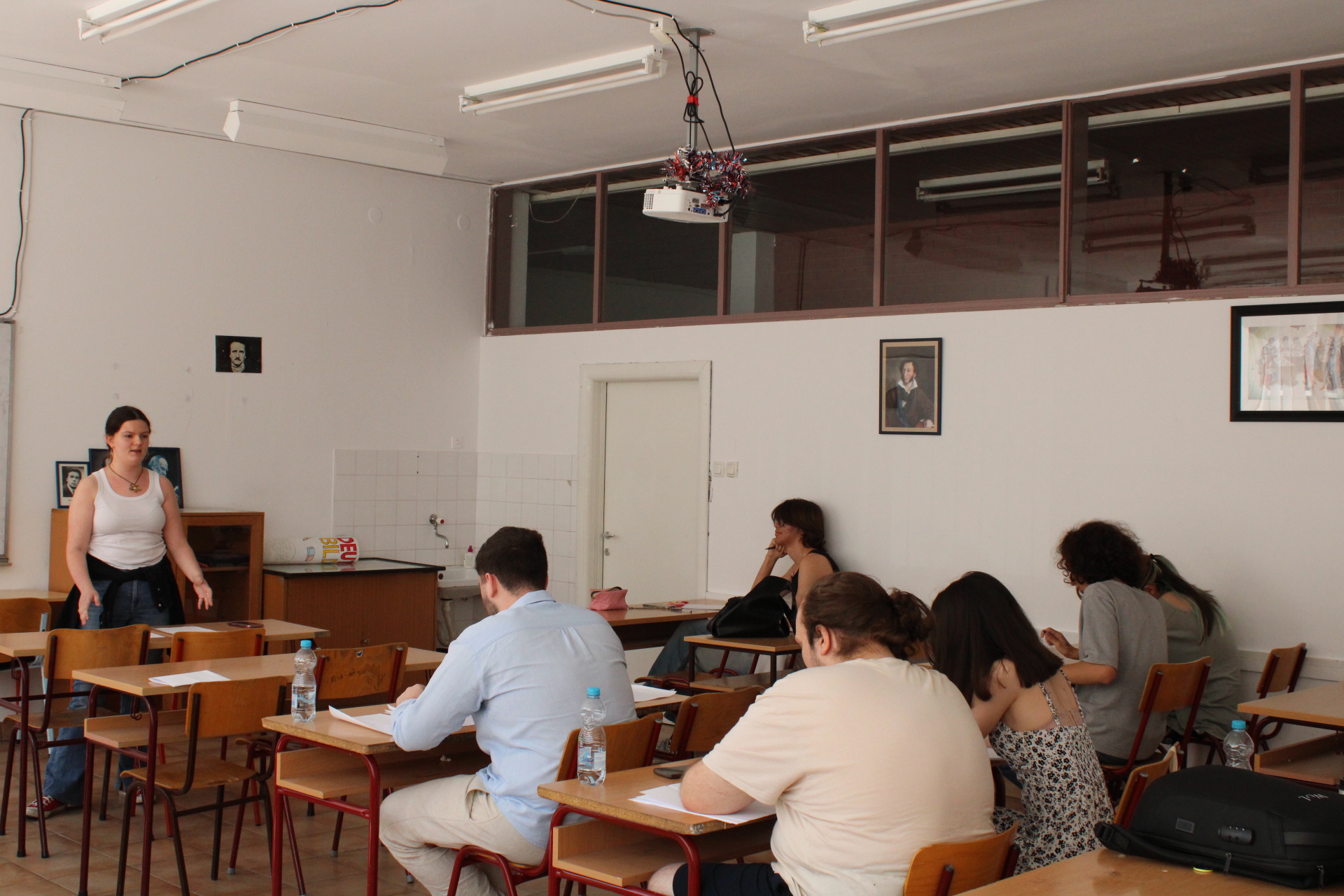
Despite political unrest in their environment, students found in debate a safe channel for energy and ideas. The sessions didn’t just teach them to argue – they taught them to believe in dialogue as a tool for change.
Shared Lessons, Shared Inspiration
Though the contexts differed, one truth emerged across all three countries: debating is still a new and fragile practice in this region, but it carries enormous potential. The students’ enthusiasm confirmed that they are hungry for spaces where they can question, challenge, and connect.
By June, over a hundred young people had gained not only technical skills in argumentation and public speaking, but also the deeper, harder-to-measure qualities of courage, openness, and civic responsibility.
As one Romanian student summed it up after a heated discussion:
I realized I don’t just have opinions – I have a voice. And if I use it, I can make a difference.
This is the heart of Debating for Diversity: to show that debate is not just about winning arguments, but about building bridges across cultures, strengthening democracy, and empowering young voices for the future of Europe.
Beyond Arguments: Exploring Different Styles of Debate
When we think of a debate, we often imagine two people standing at a podium, trying to outsmart each other with clever arguments. But the world of debating is much richer than that. Over the years, a variety of debate formats have been developed, each with its own style, rules, and purpose. In the Debating for Diversity project, our students are not only practicing debate skills, but also learning how different debate models can be used in schools, communities, and even everyday conversations.
- Parliamentary Debate – Fast, Dynamic, and Strategic
One of the most popular formats in Europe is Parliamentary Debate, inspired by the British parliamentary system. It usually involves four teams (two on each side), who argue for or against a motion.
Strengths: Fast-paced, encourages teamwork, develops quick thinking.
Best for: Training students to think on their feet, and to adapt to unexpected arguments.
Special feature: Teams do not know the topic far in advance – they have to prepare quickly and rely on creativity and logic.
- Oxford-Style Debate – Clear, Public-Friendly, and Persuasive
The Oxford format is simpler: one side proposes a motion, the other opposes it, and the audience often gets to vote before and after to see if anyone’s opinion has changed.
Strengths: Very engaging for the audience, clear structure, easy to follow.
Best for: Public events, schools, or civic debates where the goal is persuasion rather than competition.
Special feature: The audience plays a role, making the debate not just about speakers but about convincing the public.
- Karl Popper Debate – Educational and Team-Oriented
Named after the philosopher Karl Popper, this format was designed specifically for educational settings. Teams of three debaters prepare their cases in advance, with time for cross-examination.
Strengths: Excellent for developing research skills, logical structure, and respectful questioning.
Best for: High school and university classrooms.
Special feature: Balances prepared arguments with spontaneous interaction, teaching students to listen as much as to speak.
- Public Forum Debate – Accessible and Real-World Focused
Popular in the United States, Public Forum Debate is designed to be understandable to a “citizen judge” – someone without specialized knowledge. Debaters are encouraged to use plain language and real-world examples.
Strengths: Accessible, audience-friendly, directly connected to current events.
Best for: Encouraging civic participation and discussing contemporary issues like climate change or social media
Special feature: Judges are everyday people, which teaches debaters to communicate clearly and persuasively.
- Lincoln-Douglas Debate – Deep and Philosophical
This one-on-one format focuses on values and philosophy rather than purely practical issues. It’s slower, more analytical, and allows debaters to explore ethical dimensions of a topic.
Strengths: Encourages deep thinking about justice, morality, and democracy.
Best for: Advanced debaters who want to practice depth over speed.
Special feature: Instead of teams, it’s one speaker against another, sharpening individual rhetorical skill.
Why Does It Matter?
Each format highlights a different aspect of communication: speed, persuasion, teamwork, or depth. By experimenting with various styles, students in Debating for Diversity are learning that debate is not just a competition – it’s a tool for democracy, empathy, and civic engagement.
Whether they are practicing quick responses in a parliamentary debate, persuading an audience in Oxford style, or exploring minority rights in a Karl Popper round, the goal is the same: to build voices that matter.
As one student recently put it:
Different debate styles are like different languages. Once you learn them, you can connect with more people, and that’s when change begins.
Building Bridges in May: Partners Meet to Shape the Future of Debate
In May, the partners of the Debating for Diversity project came together – both in person and online – for a working meeting that proved to be as inspiring as it was productive. Hosted in Cluj-Napoca, the gathering once again showed how international cooperation can flourish even in the face of challenges.
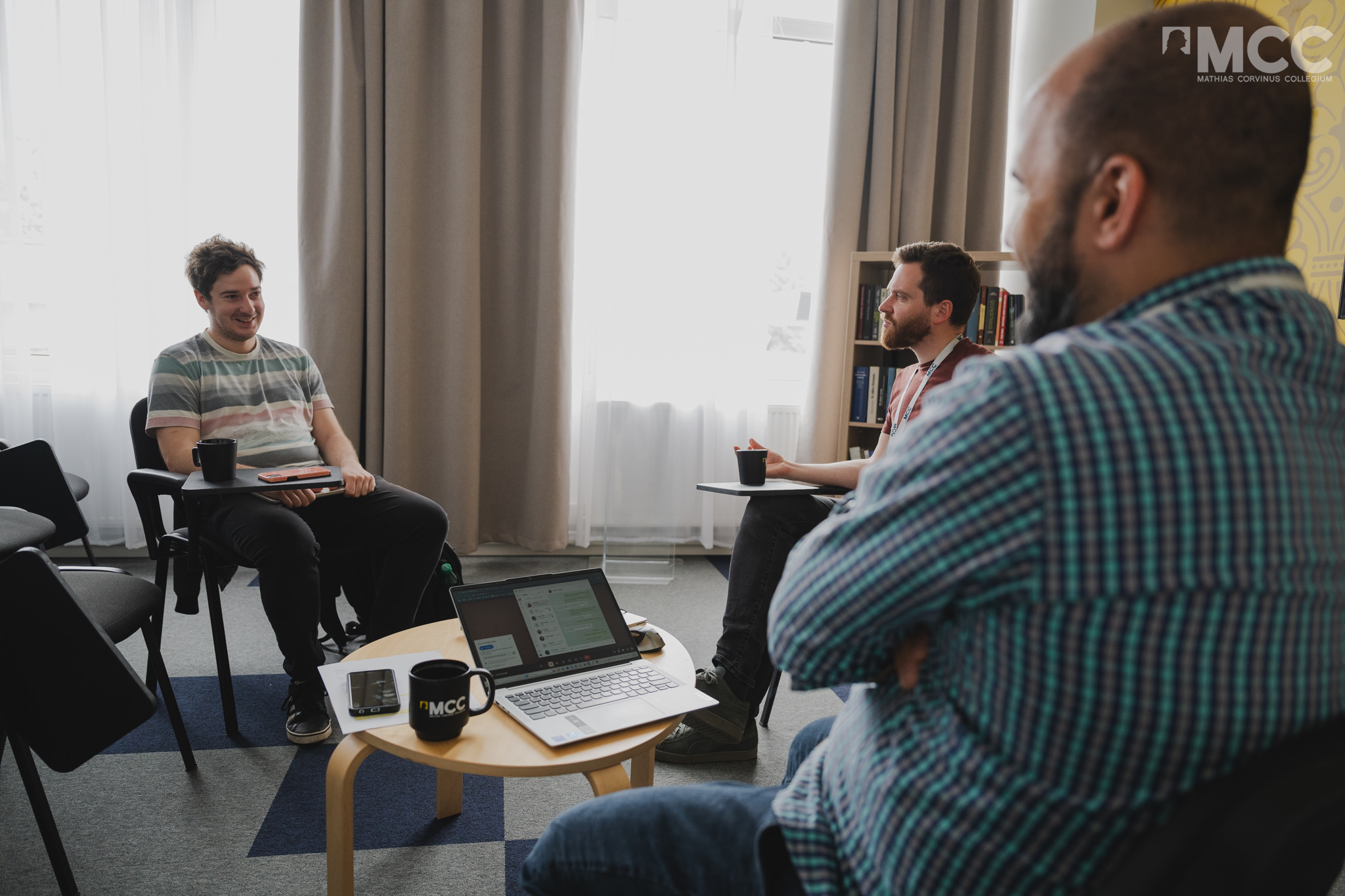
From Slovenia, Rok travelled to Cluj and joined the team on site, while Katarina, representing our Serbian partner, had to remain at home due to the ongoing unrest in Serbia. Yet distance was no barrier: she joined online, fully engaged in discussions and bringing her perspective into every decision.
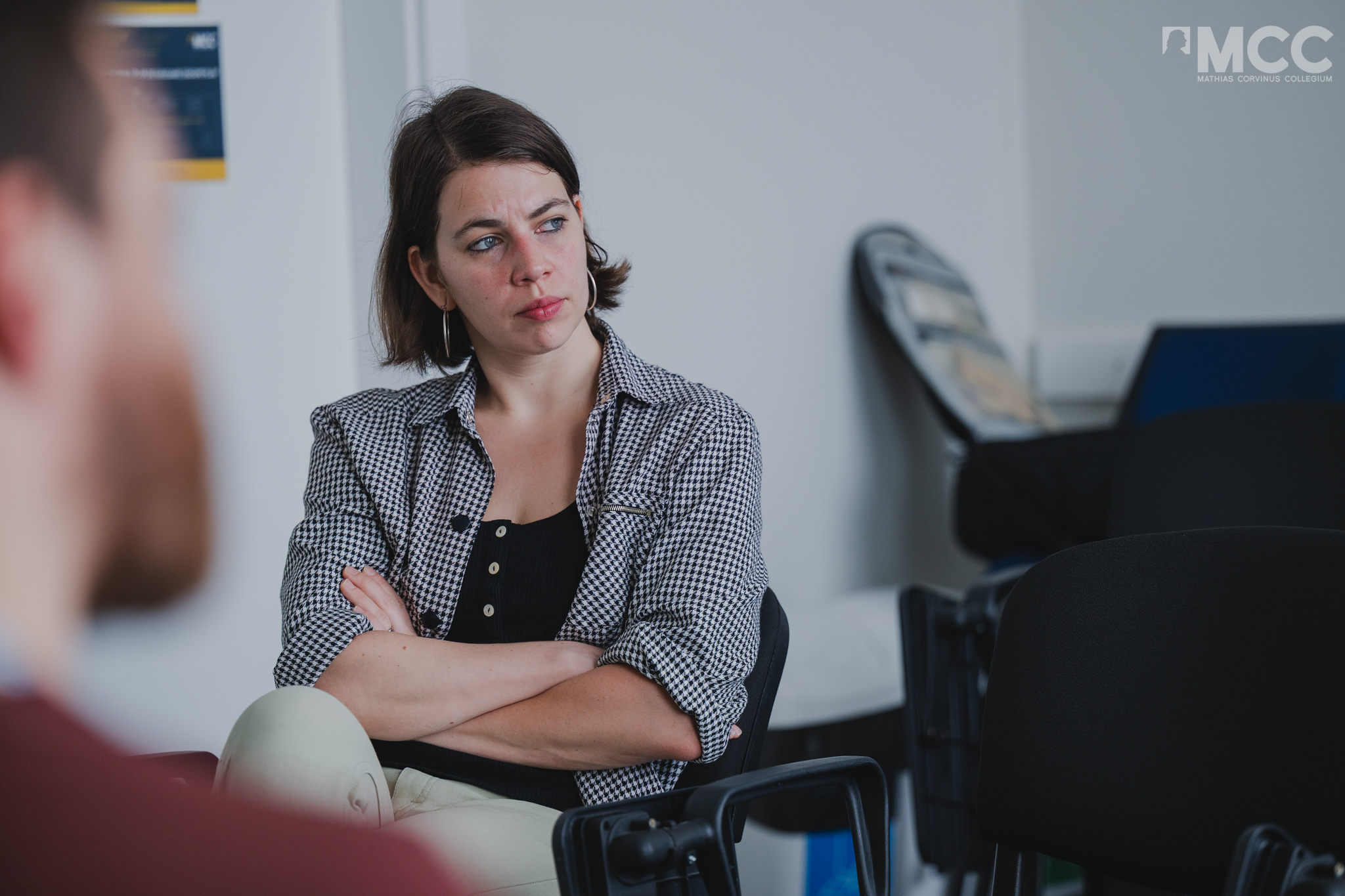
Planning Ahead: The Forum and the Handbook
The meeting focused on the exciting months ahead. Together, the partners discussed the details of the upcoming International Debate Forum in Slovenia – from the structure of workshops to the selection of topics that will resonate most with young debaters.
Another key point was the Handbook on Organizing Debate Sessions, a publication designed to serve as a practical guide for schools, universities, and youth organizations that want to introduce debating into their activities. Every partner contributed insights from their own national experiences, making sure the handbook reflects diverse approaches while staying useful and accessible.
Experiencing Debate First-Hand
During his visit, Rok also had the chance to take part in a debate organized at MCC. Seeing the Romanian students in action was a moment of shared pride for the team. It confirmed that the project’s goals are truly taking root: students are learning to express themselves, challenge each other respectfully, and engage with complex issues in a thoughtful way.
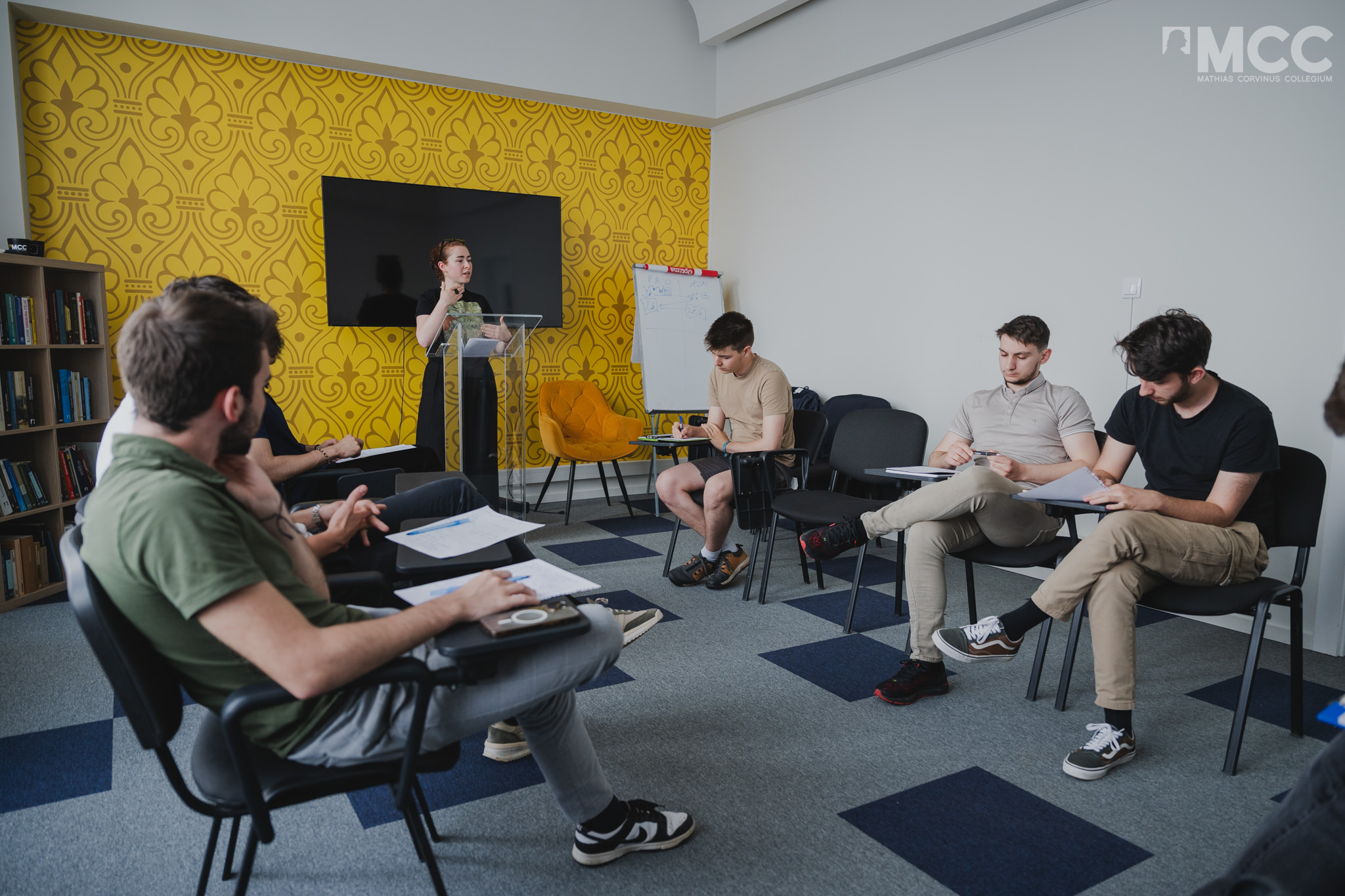 As the partners shared updates on their local debate sessions, one discovery stood out. While debating as an educational tool is still in its early stages in all three participating countries, the Slovenian team highlighted their valuable connections with Italy, where debate has already been institutionalized in schools.
As the partners shared updates on their local debate sessions, one discovery stood out. While debating as an educational tool is still in its early stages in all three participating countries, the Slovenian team highlighted their valuable connections with Italy, where debate has already been institutionalized in schools.
This cross-border knowledge is more than just inspiring – it is practical. By learning from Italy’s example, the partners are beginning to imagine how debating could one day become a regular part of school life in Romania, Slovenia, and Serbia too.
More Than a Meeting
What might have looked like just another project coordination session turned into something much more: a moment of genuine exchange, encouragement, and vision. Despite political unrest, despite cultural and linguistic differences, the partners once again proved that they share a common mission – to empower young people through the art of debate.
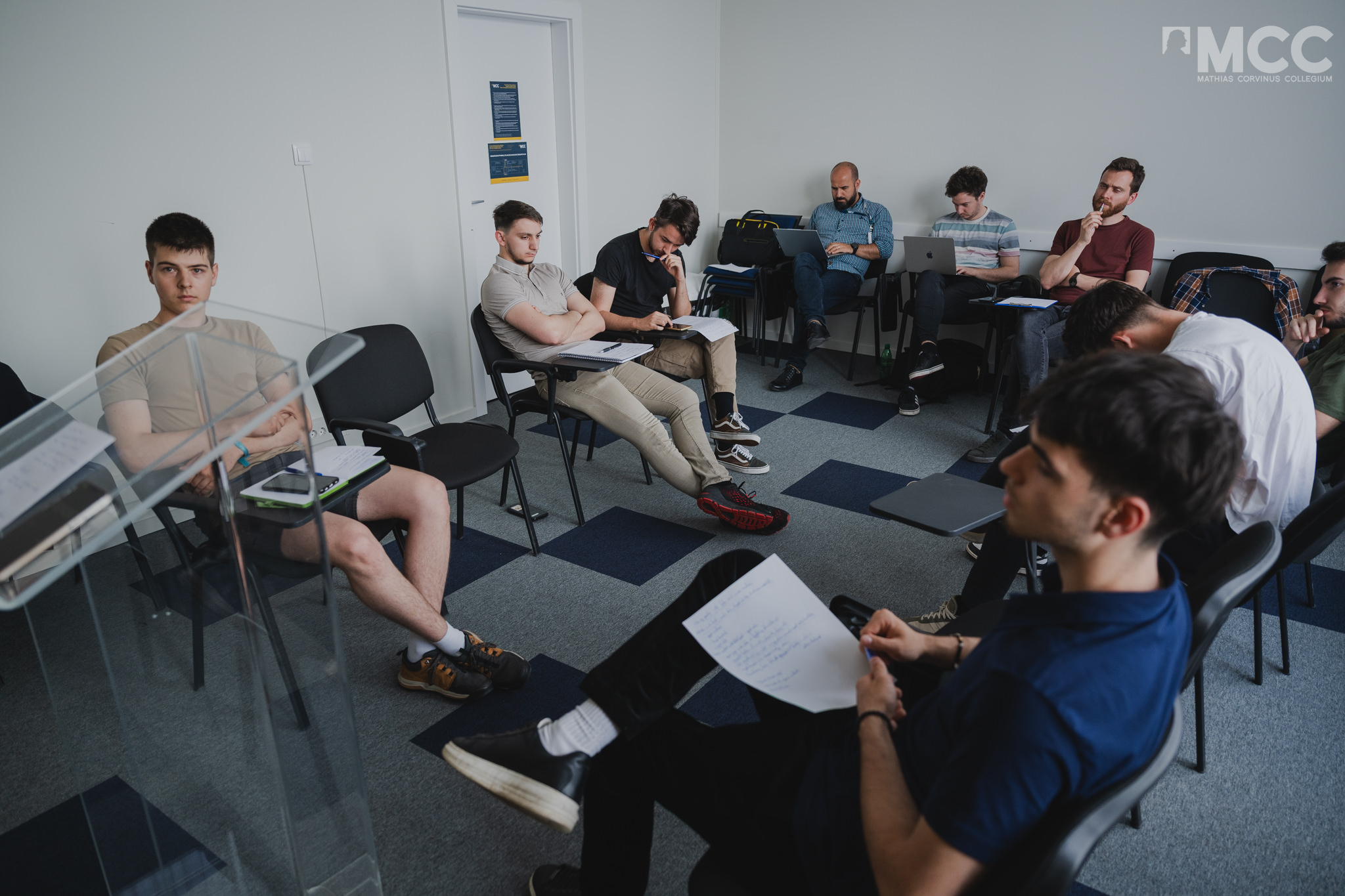
As the group left the meeting – some logging off from their laptops, others walking out into the streets of Cluj – one thing was certain: the work ahead is ambitious, but together, they are building the foundations of a culture where every young voice matters.
